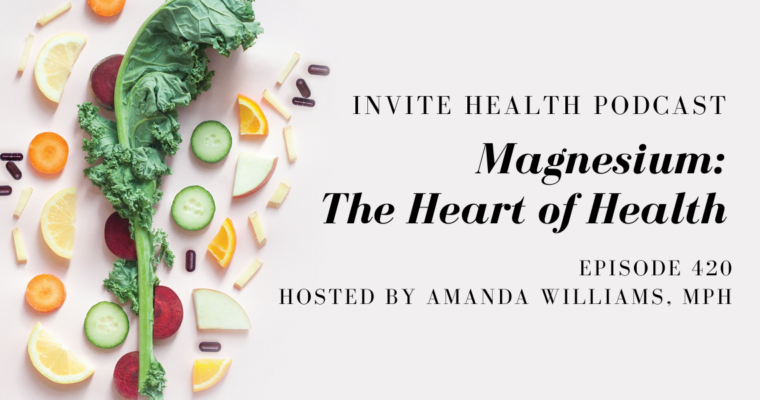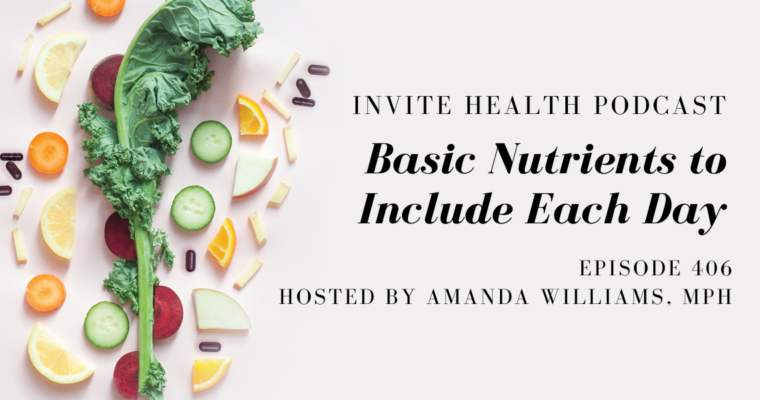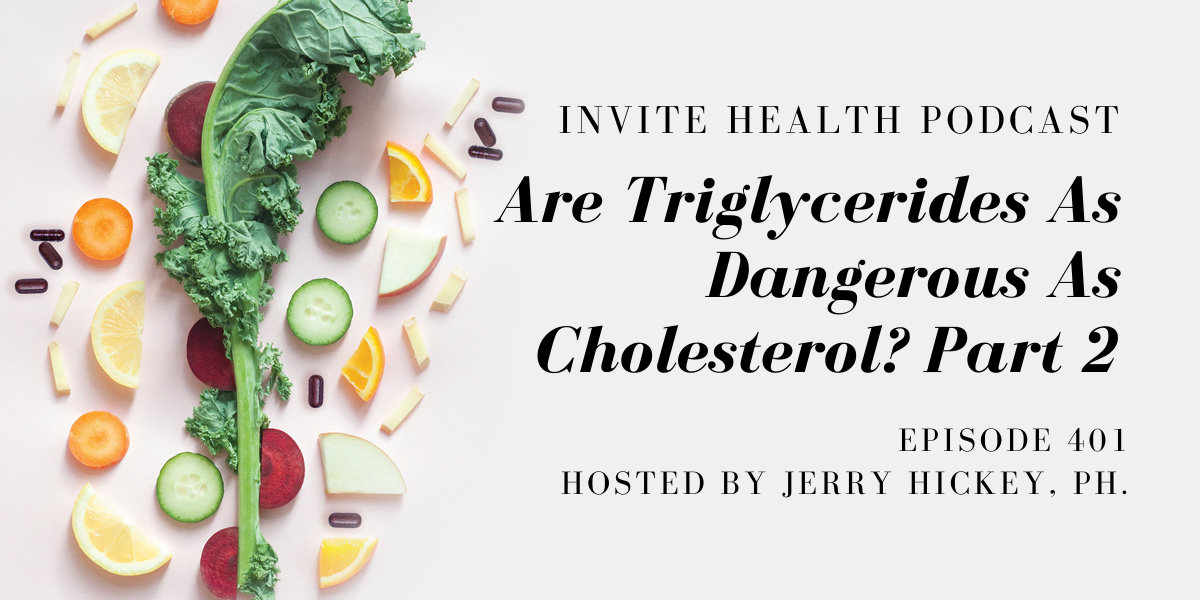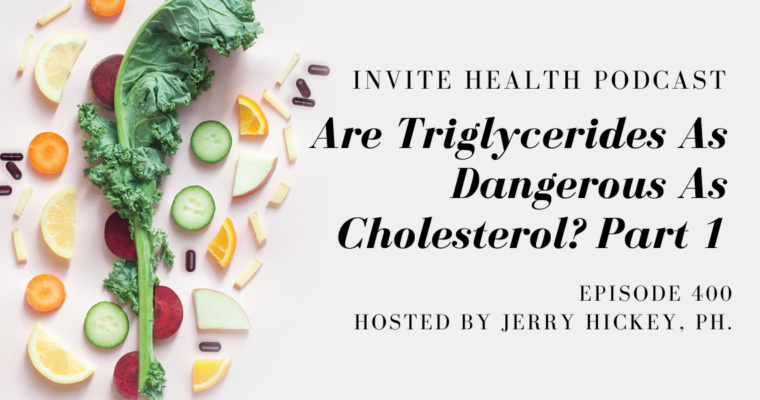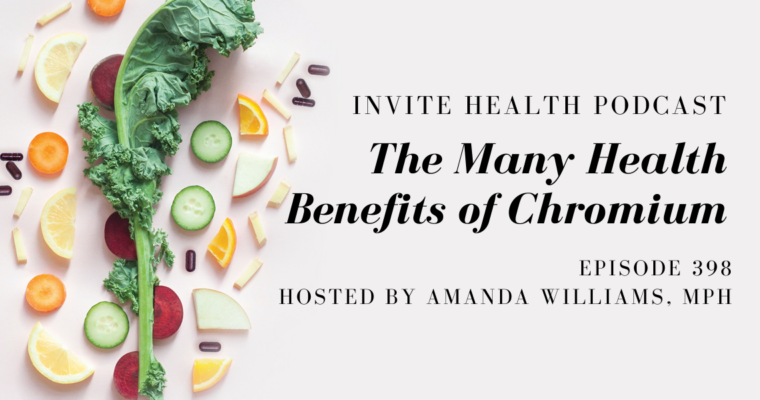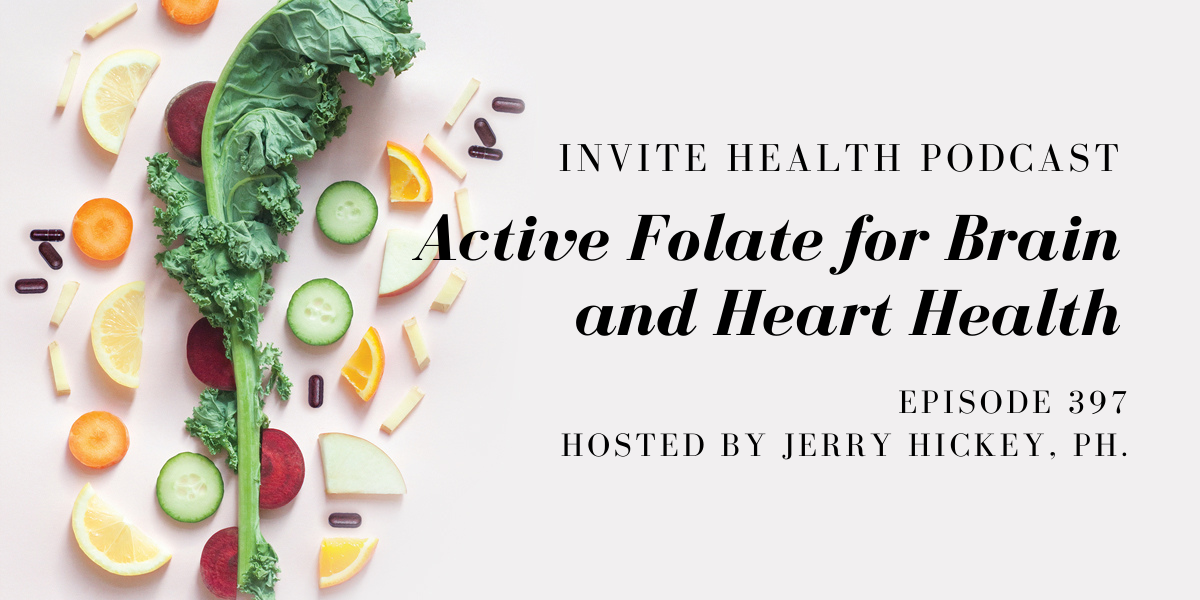triglycerides
InViteⓇ Health Podcast, Episode hosted by Jerry Hickey, Ph.
Subscribe Today!
In Part 1 of this episode, I discussed what triglycerides are, how they become elevated and some of the damage they can do, especially in the heart. I also discussed how they can relate to fatty liver disease, which is a lot more common than you think. Today, we’re going to discuss other ways that triglycerides can impact the body.†
FATTY LIVER: THE MOST COMMON DISEASE YOU’VE NEVER HEARD OF – INVITE HEALTH PODCAST, EPISODE 28. Listen Now>>
How this affects the health of the organs
Extremely high triglycerides can cause severe inflammation of the pancreas, which is known as pancreatitis. That’s not a comfortable condition. In pancreatitis, you get pain in the stomach area and it can radiate around to your back. It can cause severe nausea and vomiting and can also make your abdomen feel tender and swollen. There are a lot of symptoms that go along with pancreatitis. The problem is that if this happens too frequently, it can be connected to an increased risk of pancreatic cancer. You never want inflammation in an organ if you can help it.†
According to the American Health Association, young people with high triglyceride levels have a four times greater risk of developing heart disease or having a stroke than people with normal triglycerides.†
High triglycerides often accompany other conditions, such as obesity, metabolic syndrome, kidney disease and hypothyroidism. Your thyroid is a master gland that controls your metabolism. When it’s not functioning well, you tend to get inflamed. Your good cholesterol drops, your bad cholesterol goes up and your triglycerides go up. You also frequently have fatigue and it’s hard to focus and concentrate on things.†

How to help achieve healthy triglycerides
A healthy lifestyle is the best way to help lower your triglyceride levels. That’s the key. If you’re overweight or you’re sedentary, that’s strongly associated with developing hypertriglyceridemia. This is because you’re not burning the calories from your food.†
It’s important to exercise regularly. If you can do about 30 minutes a day for most days of the week, that can help burn triglycerides.†
You should also avoid sugary foods and refined carbohydrates. This includes anything made from white flour, like white bread or pasta. Avoid high fructose corn syrup. This might be the worst thing because you’re mixing glucose with fructose, which seems to have a worse effect on people than just having either of those on their own.†
EAT THE RAINBOW OF COLORS FOR GOOD HEALTH – INVITE HEALTH PODCAST, EPISODE 261. Listen Now>>
You should choose healthier fats. Red meat is not the best thing for your blood fats. Fish is much better because it’s high in omega-3 fatty acids and also has a lot of other healthy things in it such as the mineral magnesium and the amino acid taurine. These nutrients are good for your heart, brain and eyes.†
In this episode, Jerry Hickey, Ph. continues his discussion on triglycerides. He explains how this fat can impact the health of the pancreas and also provides recommendations of foods to eat and foods to avoid in order to support healthy triglyceride levels. Stay tuned for Part 3 of this episode, coming soon!†
Key Topics:
- What is metabolic syndrome?
- How genetics impact triglycerides
- Prescription medications that can affect triglyceride levels
- What foods should you eat to maintain healthy triglycerides?
Thank you for tuning in to the InViteⓇ Health Podcast. You can find all of our episodes for free wherever you listen to podcasts or by visiting www.invitehealth.com/podcast. Make sure you subscribe and leave us a review! Follow us on Facebook, Twitter and Instagram at InViteⓇ Health today. We’ll see you next time on another episode of the InViteⓇ Health Podcast.


